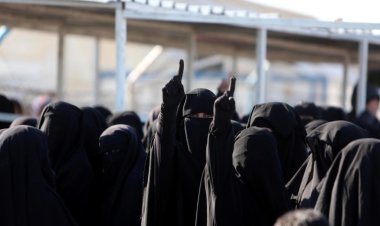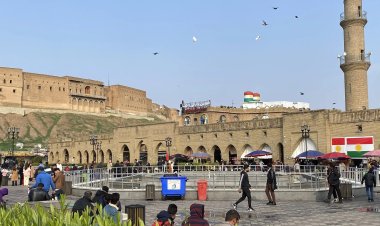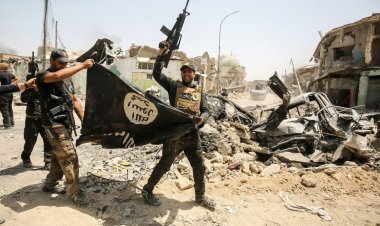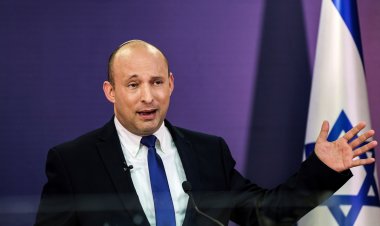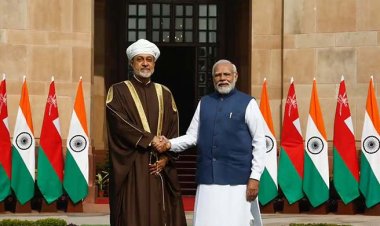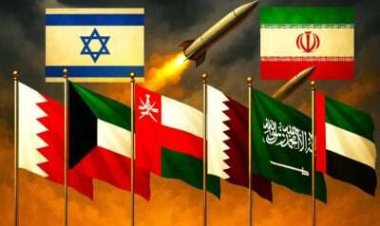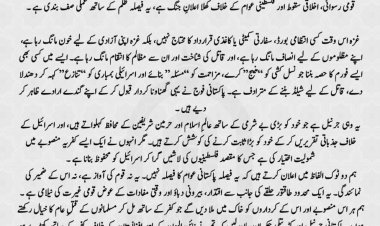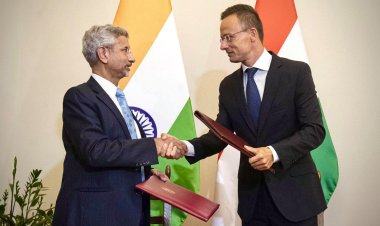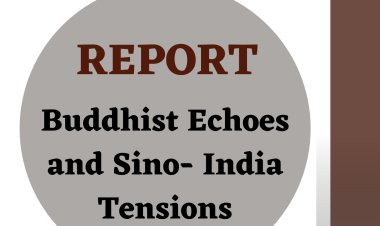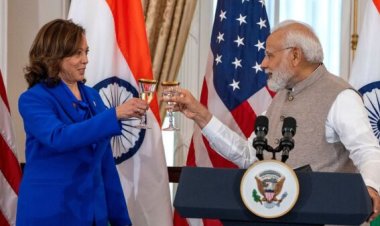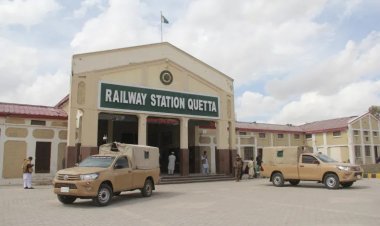Did Saudi- Israel Break Up Before They Even Got Together?
The article discusses the ties between Israel and Saudi Arabia after the Hamas attack on Israel on 7th October. It also discusses the Middle East geopolitical shifts amid Israel Hamas War
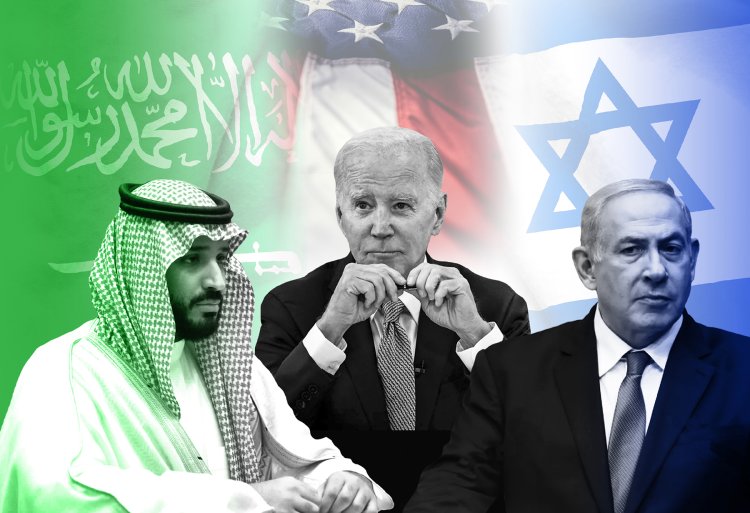
Analysis
By Niharika Godara
As Hamas launched its lethal attacks on Israel on October 7, the assault has firmly overturned Israeli efforts, supported by the United States, to promote a normalisation of relations with Arab states without conceding anything to the Palestinians. Specifically, the Gaza war has dealt a mortal blow to the efforts for Saudi Arabia to normalise ties with Israel.
Following the Hamas attacks, the kingdom has recognised that peace and stability in the region are not possible without Palestinian interests being addressed. In an official statement, the Saudi Foreign Office has recalled the kingdom’s “repeated warnings of the dangers of the explosion of the situation as a result of the occupation, the deprivation of the Palestinian people of their legitimate rights and the repetition of systematic provocations of its sanctities”. This statement is referring to the abuses countenanced by the Netanyahu government — desecration of the Al-Aqsa Mosque complex and settlement expansion and settler violence in the West Bank. Saudi Crown Prince Mohammed bin Salman has now asserted that the kingdom will “stand by the Palestinian people to achieve their legitimate rights to a decent life, achieve their hopes and aspirations, and achieve just and lasting peace”.
The Arab League and the Organisation of Islamic Cooperation (OIC) held a joint summit on November 11, 2023 in Riyadh to discuss the war in Gaza. The leaders from across the Islamic World condemned Israel’s actions and demanded the UNSC to adopt a “decisive and binding resolution” to halt Israel’s “aggression”. In the opening remarks, MBS called for an immediate cessation of military operations in Gaza and the release of all captives and prisoners.
“This is a humanitarian catastrophe that has proved the failure of the international community and the UN Security Council to put an end to Israel’s gross violations of international humanitarian laws, and prove the dual standards adopted by the world,” he said.
The Saudi- Israeli Agreement: A potential Game- changer
The Saudi-Israeli agreement to establish diplomatic relations with enhanced US security commitments in the Gulf had the potential to reshape the dynamics of great power rivalry in the Middle East. Saudi Arabia sought legally binding security assurances from the US, support for its nuclear program, and access to advanced weaponry. Additionally, it asked the most Ultra- nationalist and Ultra- conservative Netanyahu-led Israeli government to play a role in defining progress in the Israeli-Palestinian conflict. Normalizing relations could have paved the way for Saudi Arabia to secure a coveted US defence pact.
Palestinian officials also conveyed their expectations, including a halt to new Israeli settlements, increased Palestinian control in the West Bank, UN membership, and diplomatic offices in Washington and East Jerusalem. Saudi Arabia, the place where Islam originated and where its two most sacred sites are situated, had already shown its determination to proceed with a U.S. defence agreement, regardless of whether Israel made substantial concessions to the Palestinians in their quest for statehood.
Crown Prince Mohammed bin Speaking to Fox News, expressed that Saudi Arabia and Israel were moving “closer” to formalizing relations. Three-way talks on defence, energy, and nuclear power hinted at a substantial breakthrough, touted as "the biggest historical deal since the end of the Cold War." Importantly, Saudi demands signalled a preference for the US as a long-term security partner over China, potentially tilting the regional power balance in favour of the United States.
Middle East Geopolitical Shift: Implications of the Recent Hamas Attack on Israel
Everything was moving smoothly until the unprecedented Iran-backed attack by Hamas on Israel on October 7th, often likened to Israel's 9/11, significantly altered the geopolitical landscape in the Middle East. Iran, which had long opposed Arab-Israeli normalization, saw this offensive as a validation of its stance. Iranian Supreme Leader Ayatollah Ali Khamenei had also cautioned five days before the hostilities that the normalization of relations with Israel was “doomed to failure”.
The conflict, with over 12,000 casualties on both sides in the last 40 days, marked one of Israel's most serious crises since the 1973 Yom Kippur War. Notably, Israel is no longer regionally isolated, having signed peace accords with Egypt and Jordan in 1979 and 1994, as well as the Abraham Accords in 2020, which normalized relations with the UAE, Bahrain, and Morocco.
Oman hosted Israeli prime ministers Yitzhak Rabin, Shimon Peres, and Benjamin Netanyahu in 1994, 1996, and 2018, respectively, and Saudi Arabia's then-Crown Prince Abdullah bin Abdulaziz led the Arab Peace Initiative (API) in 2002. Saudi authorities praised Israel's forbearance under Scud missile bombardment in the 1990-91 Gulf War, which shifted their views towards Israel. Discrete ties between Gulf Arab and Israeli policymakers began at the 1991 Madrid Peace Conference and grew over time.
However, the recent conflict complicated U.S.-led efforts to secure Saudi recognition of Israel, with many in the Arab world viewing normalization as increasingly taboo. It also prompted a conversation between the Saudi crown prince and Iran's president to speak for the first time since April, focused on supporting Palestine and preventing further regional conflict.
The crown prince met with U.S. Secretary of State Antony Blinken in Riyadh three days later amid media reports of Saudi-U.S. disagreements on the crisis and de-escalation. In a phone interaction on October 9, Mohammed bin Salman told Mahmoud Abbas that Saudi Arabia would “stand by the Palestinian people” and their ambitions. Foreign Minister Faisal bin Farhan engaged with his Egyptian, Jordanian, and Qatari counterparts, US Secretary of State Antony Blinken, and EU high representative for foreign and security policy Josep Borell after the Hamas attack and Israeli response. Faisal bin Farhan called for a ‘joint action plan’ to prevent the conflict from intensifying and spreading, and the Saudi leadership may see an opportunity to position the country at the center of the regional diplomatic response to Gaza. Since 2021, Saudi Arabia has emphasized portraying Mohammed bin Salman as a statesman and addressing regional and international challenges, most recently hosting Ukraine discussions in Jeddah last August. The Saudi Foreign minister also called for immediate and sustainable ceasefire in Gaza in the UN Security Council Debate held on 25th October.
President Joe Biden believes Hamas launched its unprecedented strikes on Israel to sabotage a diplomatic thaw with Saudi Arabia. Recent months have seen warmer ties between Israel and Saudi Arabia, Washington's two most powerful Middle Eastern allies, as the Biden administration has sought to normalize relations. Biden also unveiled a rail and shipping corridor at the G20 meeting in India, and Israel and Saudi Arabia were among the two dozen countries that agreed to collaborate. The U.S. had hoped to achieve a historic peace agreement between Israel and Saudi Arabia, but this now appears uncertain.
As Israel’s actions in Gaza escalate, Arab leaders who recently normalized relations with the country are facing mounting pressure from their populations to condemn Israel and sever ties. A 2022 Arab Opinion Index revealed that a significant majority of respondents in various Arab countries believe the Palestinian cause concerns all Arabs (76%), and an overwhelming majority would disapprove of their nation’s recognition of Israel (84%). The UAE, Bahrain, and Morocco, which established diplomatic relations with Israel following the 2020 Abraham Accords, are now grappling with how to respond to the rapidly evolving Gaza situation. While they don’t support Hamas and its radical ideology, growing global anti- Israel sentiment force them to reconsider their diplomatic missions.
Challenges and Dilemmas for Saudi Crown Prince Amidst Escalating Middle East Crisis
In the face of the escalating crisis, Saudi Crown Prince Mohammed Bin Salman faces a daunting dilemma. If he proceeds with normalizing relations with Israel, he risks being labelled a betrayer of Arab and Muslim sentiments, given the widespread support for Hamas and resistance against recognizing Israel’s existence. On the other hand, abandoning normalization could jeopardize crucial U.S. incentives, such as a mutual defense alliance and advanced civil nuclear infrastructure, particularly as Iran’s nuclear ambitions loom large. Bin Salman has expressed concerns about any country obtaining nuclear weapons, signaling that Saudi Arabia may feel compelled to pursue its own nuclear capabilities if Iran develops such weapons.
Saudi Arabia's Strategic Pause: Navigating Complex Diplomacy Amidst Israel-Hamas Conflict
In a strategic move, Saudi Arabia has temporarily paused its talks on normalizing relations with Israel, indicating that it remains committed to this endeavor without completely abandoning it. Behind the scenes, Saudi officials are working to diplomatically defuse the Israel-Hamas conflict to prevent it from escalating into a broader regional war that might bring in Lebanon, Iran and others, which could jeopardize Crown Prince Mohammed's ambitious Vision 2030 projects, including Neom, the futuristic new city on the Red Sea coastline and attracting foreign investment aimed at luring non-religious tourism and establishing Saudi Arabia as a travel, leisure, and sports hub. With aspirations of attracting 150 million visitors annually by 2030, avoiding regional instability and conflict is paramount. Lingering memories of the 2019 missile and drone attack on Saudi oil infrastructure and the 2022 Formula One Grand Prix in Jeddah set against a backdrop of Houthi strikes on a nearby fuel depot underscore the need for stability in the pursuit of these grand ambitions. By temporarily halting the normalization process, Saudi Arabia avoids potential blowback from other Middle Eastern states and gains leverage with Israel and the U.S., ensuring that the current violence doesn't derail their delicate diplomatic efforts. This tactical pause aligns with Saudi Arabia's broader strategy to "de-risk" the region and assert control over the next phase of this complex endeavor, all while managing growing concerns in the Islamic world regarding Gaza.
Disclaimer: This paper is the author's individual scholastic contribution and does not necessarily reflect the organization's viewpoint.
Niharika Godara completed her graduation in Political Science Hons from DU and currently pursuing Masters in International Relations from JGU. Her interest areas are geopolitics and diplomacy and the role of international institutions in addressing global challenges.

